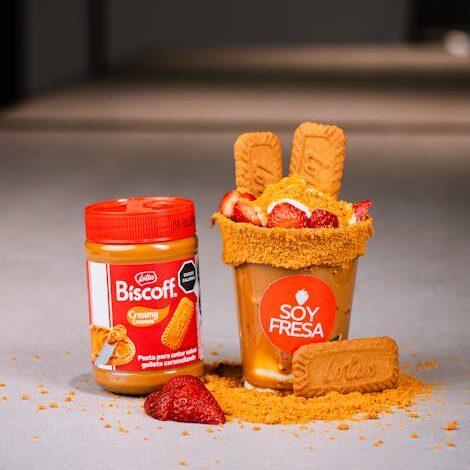The Weight of the Shirt: Navigating Passion and Professionalism

In the high-stakes arena of professional football, every word, every gesture, and every post-match comment is amplified under the global spotlight. Players, especially those gracing the illustrious stage of Real Madrid, aren’t just athletes; they’re brand ambassadors, role models, and often, lightning rods for criticism. We’ve all witnessed the raw emotion that fuels the beautiful game, the passion that can drive players to breathtaking feats – and sometimes, to moments they later regret.
Such is the recent narrative surrounding Vinicius Jr., Real Madrid’s electrifying Brazilian winger. After what was widely described as a moment of “petulance” on the pitch, he stepped forward with an apology, a public act of contrition for his on-field reaction. He vowed to “keep fighting” for the club, a declaration that resonates with the club’s never-say-die ethos. Yet, amidst the humility and commitment, a subtle but significant detail emerged, stirring conversations and raising eyebrows: there was no mention of Xabi Alonso in his apology.
This isn’t just about a missed name; it’s a window into the complex dynamics of elite sports, the pressures faced by young stars, and the art of public relations in an age where everything is scrutinized. What does this carefully worded apology tell us about Vinicius, Real Madrid, and the ongoing narrative of a player finding his mature footing?
The Weight of the Shirt: Navigating Passion and Professionalism
Vinicius Jr. is, without a doubt, one of football’s most exciting talents. His blistering pace, audacious dribbling, and knack for pivotal goals have made him a fan favorite and a crucial component of Real Madrid’s attack. But with that extraordinary talent comes an equally intense personality – a fiery spirit that, while often a catalyst for brilliance, can sometimes spill over into moments of frustration or perceived ill-discipline.
For young players, especially those thrust into the unforgiving cauldron of a club like Real Madrid, managing emotions on the pitch is a constant learning curve. The pressure to perform, the provocation from opponents, the roar of the crowd, and the critical eye of millions can be overwhelming. What might be a minor reaction in another setting becomes a headline-grabbing incident when it involves a global superstar.
Vinicius’s acknowledged “petulance” falls into this category. It suggests an emotional outburst, a reaction that, in hindsight, he recognized as unbecoming of a Real Madrid player. His apology, therefore, is a vital step in his professional development. It signifies an understanding that while passion is essential, it must be channeled, controlled, and ultimately, serve the team’s best interests, not detract from them. It’s a fine line every top athlete must walk: maintaining the fire without letting it consume the professionalism.
From Prodigy to Professional: The Maturation Journey
Every great player has a story of maturation. Lionel Messi, Cristiano Ronaldo – they all went through phases where their temperament evolved alongside their game. For Vinicius, still only 23, these public apologies and subsequent vows are part of that inevitable journey. It’s about learning the difference between competitive fire and counterproductive frustration. The Real Madrid shirt carries a legacy, a standard of conduct that transcends individual brilliance. To wear it means embracing not just the glory, but also the immense responsibility and self-control it demands.
A Calculated Apology? The Xabi Alonso Conundrum
This brings us to the most intriguing aspect of Vinicius’s apology: the specific omission of Xabi Alonso. Public apologies in high-profile scenarios are rarely spontaneous. They are often carefully considered, drafted, and vetted, especially when they involve a club of Real Madrid’s stature. Every word, or lack thereof, can carry significant weight and convey a message, intended or otherwise.
The fact that Vinicius apologized for his general “petulance” and pledged loyalty to Real Madrid, but conspicuously failed to mention Xabi Alonso – who was presumably the target or a significant party in the “reaction on Sunday” – is telling. In the world of PR and conflict resolution, a specific apology to an aggrieved party is often seen as the most sincere form of contrition. Its absence raises questions.
Could it be an oversight? Unlikely, given the high-stakes nature of such a statement. Is it a deliberate choice to avoid validating or further escalating a personal disagreement? Perhaps. It might signal that while Vinicius acknowledges his general conduct was wrong, he still perceives a specific issue with Alonso, one he’s not yet ready or willing to address publicly, or perhaps believes is best handled internally.
This non-mention opens a fascinating dialogue about player relationships and the hierarchy of apologies. Is it an apology to the institution of Real Madrid, but not necessarily to an individual perceived as having played a role in the incident? If so, it suggests a lingering tension, a wound that might be acknowledged generally but not specifically healed. For a team to function optimally, underlying tensions need to be resolved, not just publicly glossed over. The football world will be watching to see if this omission is merely a footnote, or if it points to a deeper, unresolved dynamic within the club or between individuals.
More Than Just Words: The Road Ahead for Vinicius and Real Madrid
Vinicius’s vow to “keep fighting” for Real Madrid is powerful. It’s the kind of declaration fans want to hear from a player whose talent can define an era. But actions, as the saying goes, speak louder than words. For Vinicius, “keeping fighting” now entails a multidimensional effort. It means consistent performance on the pitch, continuing to be a decisive attacker. It also means demonstrating a heightened level of emotional maturity, controlling reactions, and channeling any frustration into positive output.
This isn’t just about his individual growth; it’s about his role within the Real Madrid ecosystem. His relationship with teammates, coaches, and indeed, officials and opponents, will be under renewed scrutiny. A player known for drawing fouls and eliciting strong reactions can sometimes find himself targeted. His response to such provocations will be key. Maturity here means not just avoiding “petulance” but also understanding how to navigate the psychological warfare that is part of top-tier football.
For Real Madrid, managing such a prodigious talent involves a delicate balance. They rely on his flair and game-changing ability, but they also need a disciplined, focused player who embodies the club’s values. This incident, and Vinicius’s response, will be a test case for how the club nurtures its stars, guiding them through the inevitable peaks and troughs of a high-pressure career. It reinforces the idea that true success isn’t just about scoring goals, but about becoming a complete professional, both on and off the field.
In the grand theater of football, narratives are constantly being written. Vinicius Jr.’s recent apology is more than just a public statement; it’s a chapter in his ongoing story. It highlights the eternal struggle of passion versus control, the nuanced art of public perception, and the relentless journey of a young star maturing under the brightest of lights. His commitment to “keep fighting” is a promising sign, but the lingering question mark of the omitted Xabi Alonso serves as a subtle reminder that in football, as in life, some stories are still unfolding, and true resolution often requires more than just an official apology. What happens next on the pitch, and perhaps behind the scenes, will truly define the sincerity and completeness of this moment of contrition.





